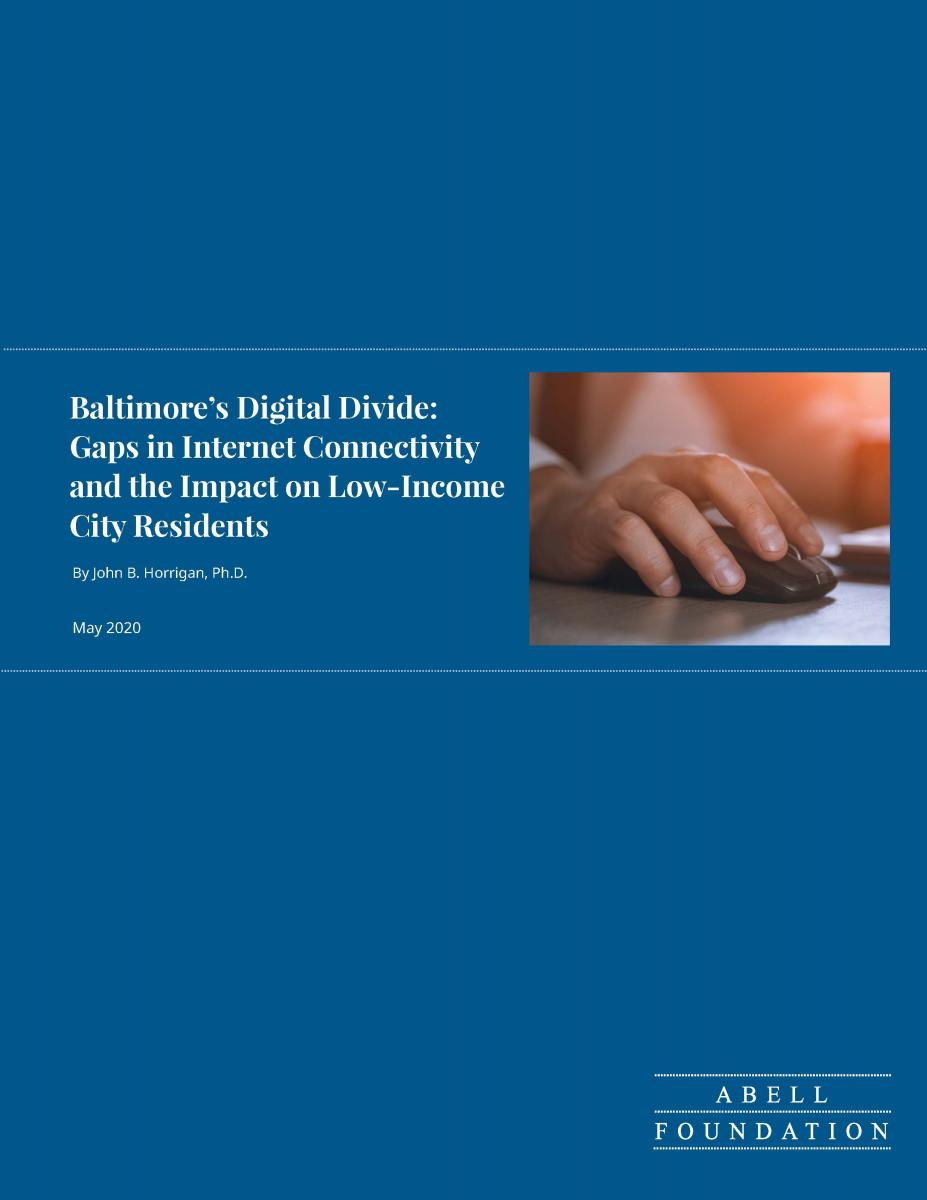Join Maryland Philanthropy Network for a peer learning exchange for funders supporting environmental and sustainability issues in Maryland! We take some time to integrate our learnings, share what we are thinking about and focusing on, and discuss our plans for the coming year. Lightly structured, these peer-to-peer exchange events are designed to integrate and learn from others in philanthropy through facilitation of the following: strategy sharing and exchange of ideas around what other funders are working on, stimulating new ways of thinking by sharing learnings and creating an environment conducive to discovery among the community of funders, and relationship building.
RESOURCE FOR MEMBERS ONLY
View program resources from Meet The Funders – Closing the Funding Gap for Black-Led Nonprofits III.
FIND MORE BY:
Child Care Resource and Referral (CCR&R) services are essential to a high-quality, high-functioning child care system. Join Maryland Philanthropy Network's Prenatal-to-Five Affinity Group and Tracy Harris, Program Director of the Baltimore City Child Care Resource Center (BCCCRC) to learn how CCR&R centers support diverse child care options for families and provide essential professional and business development for child care providers. The conversation will explore the ways BCCCRC contributes to the implementation of Pillar 1 of the Blueprint for Maryland’s Future and learn about the gaps that are ahead as ARPA funding concludes.
During this meeting, Erica Pinket, the new Climate and Resilience Planner with the Baltimore City Office of Sustainability in the Department of Planning will share her vision for supporting and building Community Resiliency Center Hubs and the very relevant heat mitigation practices they are implementing. Jeff Griffin, Executive Director of the Franciscan Center, and Eli Allen and Simon Zimmer with Civic Works will talk about their successful and sometimes challenging efforts to build infrastructure, purchase and maintain essential equipment and supplies, and obtain financial support as Resiliency Hub operators.
Join Maryland Philanthropy Network for an update on the state effort to end child poverty in Maryland.
Click here to view and download the full report.
A new analysis of American Community Survey (ACS) data shows that large numbers of Baltimore households lack two essential tools for getting online: wireline broadband service at home and computer...
FIND MORE BY:
Maryland Philanthropy Network is pleased to suggest to its members, as part of our Democracy and the Social Sector Series, Maryland Nonprofits annual legislative preview event in Annapolis. See you there!
Maryland’s Arts & Entertainment (A&E) Districts are charged with developing and promoting community involvement, tourism, and revitalization through tax-related incen
After a delay of 27 months, we are pleased to finally host an open house for members at our office space in Baltimore’s Hampden neighborhood! Our customized 4,000-square-foot office features a polished and comfortable conference room (twice the size as our old one), casual meeting areas, an open kitchen, and over 100 feet of gallery space. During the open house, we invite you to tour our offices and convening spaces, experience our first art installations - The Photographer is Listening by Edwin Remsberg and Positive Connection by G.M. Webb, all while enjoying light fare with friends and colleagues as we establish the new center for philanthropy in Maryland.
We are a membership association striving to add value and capacity for our members, a network connecting a growing community of donors across Maryland and a partner with nonprofits and community leaders working to advance the impact of the social
Update from the Baltimore Integration Parntership, a project hosted by the Maryland Philanthropy Network.
This is the second session of a 6-part webinar series on Demystifying Trust-Based Philanthropy focused on addressing common questions, clarifying misconceptions, and exploring ways to overcome obstacles in implementing trust-based philanthropy. In this session, we’ll unpack the difference between unrestricted funding that is deployed in a trust-based way, and what it looks like when it’s not. We’ll also share case studies from funders who have shifted from project-specific to majority unrestricted funding, as well as those who have embedded trust-based values within semi-restricted grants. Participants can expect to gain greater clarity on the philosophy behind unrestricted funding in a trust-based context, and strategies for aligning trust-based values with the way grants are structured and deployed.
Neighborhood change is a critical issue for Baltimore, a city that is seeing strong revival in some areas and continuing decline in others, a city that is both racially and economically polarized.
535 philanthropic leaders, representing nearly every state across the country, issued a letter to the US Department of Commerce with a clear message: Don’t cut the census short.
“In the U.S., Black women are three to four times more likely to die from pregnancy-related causes than white women.
The Open Society Foundations will provide $1 million in direct financial and other emergency support for workers in Baltimore who have been hit hard by COVID-19 and are at greatest risk of falling into extreme hardship, including those who are unemployed and the formerly incarcerated.
The Horizon Foundation has announced three new members to its board of trustees: Jonathan Ilsong Ahn, Esq., an attorney and Korean American community leader; Catherine Hamel, president of Gilchrist Hospice Care; and Brian Hepburn, MD, executive director of the National Maryland Philanthropy Network of State Mental Health Program Directors.
When I began my work as Director of Community Affairs for The Harry and Jeanette Weinberg Foundation in 2010, I knew that I had much to learn as I transitioned from 30-plus years as a broadcast journalist. For all that time, I had been part of the audience for public relations and marketing folk.
During her inaugural address in December 2011, Mayor Stephanie Rawlings-Blake proposed an ambitious goal to grow the city by 10,000 households over 10 years.
Not all young people have the benefit of growing up in a safe and stable home.

